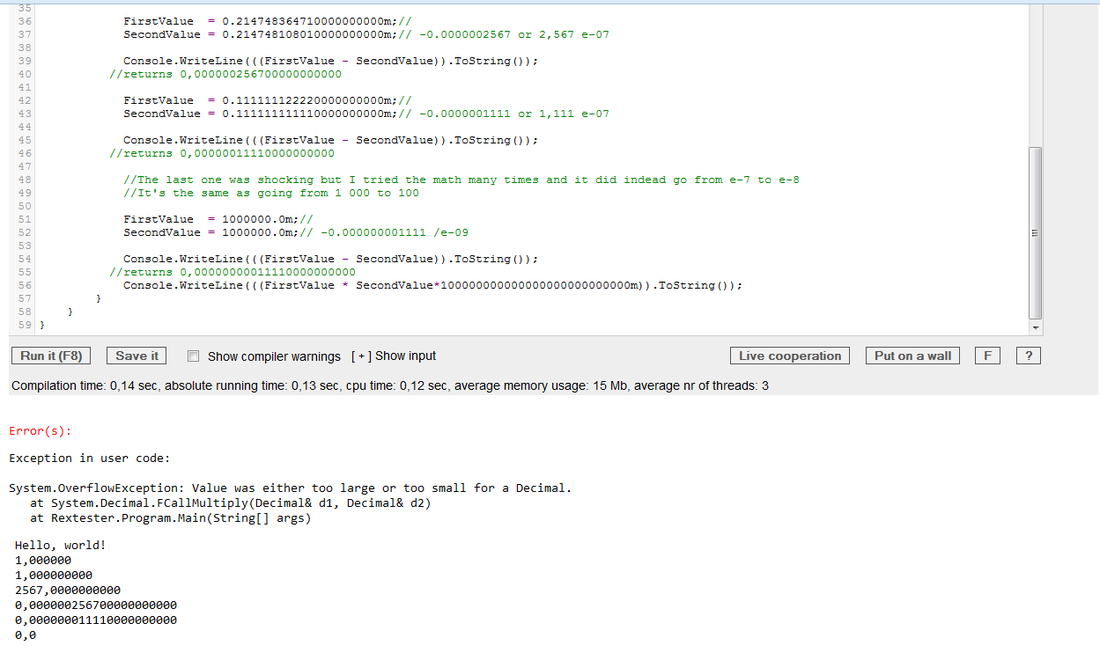2 hours ago, CubeUser said:
How severe would those "errors" be in a scenario that it is used in an idle game?
Your errors start at 1 000 000 000 and is in the 100 or 10. So it's a small error that can be ignored.
2 hours ago, CubeUser said:
at least not in Adventure Capitalist,
I assume they just ignore it. Most developers wouldn't put much effort into a clicker game.
2 hours ago, CubeUser said:
sing endless arrays of "ints" like you suggested (How is that even possible without writing a CPU emulator of some sort?),
Easy a int is 4 bites. It's so small it can be ignored. It only matters when your working with shaders.
Why do you think a CPU emulator would be needed and what would a CPU emulator even be? The computer is the CPU, so a CPU emulator would be a way for your CPU to be a CPU.
The int array, is a very simple work around to a problem that many games have. It's very easy to do and a shortcut.
2 hours ago, CubeUser said:
a few hundred gold points would that matter indeed when you have around quintillions?
It's more like millions while you are at quintillions. But yea, it doesn't matter much.
2 hours ago, CubeUser said:
I think it's why "m" is used as suffix.
m is used because d is used for double.
2 hours ago, CubeUser said:
(-7.9 x 1028 to 7.9 x 1028) / (100 to 1028)
28-29 significant digit
By this same calculation a double is ±5.0 × 10−324 to ±1.7 × 10308 or 15-16 digits.
It's after 16 digits that your double looses it's accuracy. It's after 29 digits that a decimal looses it's accuracy.
A double is a 64bit decimal a decimal/ Bigdecimal is a 128 bit. So Double < Decimal.
But Decimal have there own problem. That is the thing, there is no best way to do this, just the way you decide.
2 hours ago, CubeUser said:
but as for those advanced calculations involved with idle games, prestige points, bonuses logaritms etcetera
You would only make one function to deal with it. That code I uploaded first is more than 50% done.
2 hours ago, CubeUser said:
I wish Unity3D had a template for these kind of games, because it is so popular and I seen templates for other genrtes, including puzzle.
If you feel it would help you, you can hire a developer. A game like this takes about a week.
The thing is that it would have more complex function than the math for the transactions. There is a very high chance that if you looked at complete game you would have even less of an idea of what to do.
If you feel like using doubles then do so. Your the developer and who knows maybe the slightly unpredictable values could have a positive effect on the game.
A clicker game is very simple, your menu is going to be more complex. I wish you luck and I hope your research helps.




